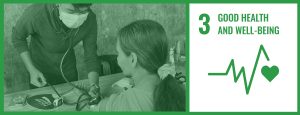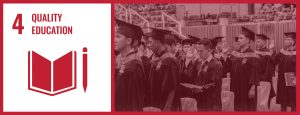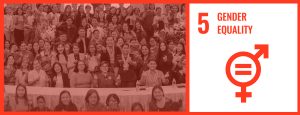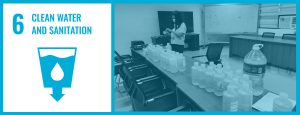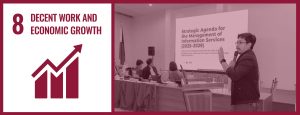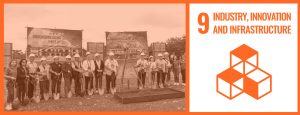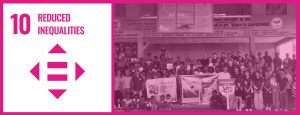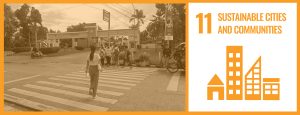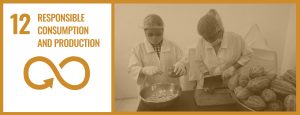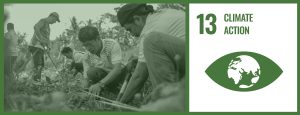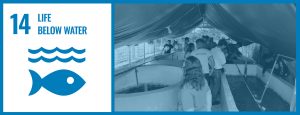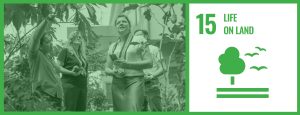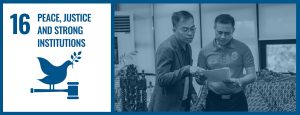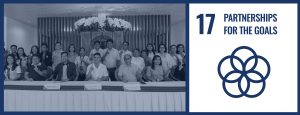2024 Research | SDG 10 – Reduced Inequalities
Research Programs
School Need Assessment of Angadanan, Isabela: Key for Gender Responsive Extension Program
Proponents: EUGELYN R. FELIX, JUDITH E. DARACAN, PAULINO V. DERILO
Abstract
The study employed a descriptive design using a quantitative approach to assess the training needs of secondary school faculty members in Angadanan, Isabela, Philippines. The respondents included male and female faculty, non-teaching staff, and students from secondary schools in the municipality, selected through purposive sampling. A self-made survey questionnaire was used to gather data on the personal information, training experiences, and training needs of the respondents. The questionnaire also included a 5-point Likert scale to assess the degree of knowledge and skills of both student and teacher respondents. The data analysis involved frequency and percentage distribution to determine the distribution of responses for each item in the questionnaire, providing insights into the training experiences, knowledge, skills, and needs of the secondary school faculty. Descriptive statistics, including mean and standard deviation, were used to assess the degree of knowledge or skills of the respondents. The study found that the majority of the faculty members are relatively young, with 75.6% falling within the age brackets of 21-40 years. The faculty members have advanced levels of communication, interpersonal, and pedagogical skills, but their ICT, leadership, technological, research writing and publication, entrepreneurship, mental health, and gender and development related skills are at an intermediate level. The most pressing needs among the faculty respondents are research writing and publication, ICT skills, and pedagogical skills. The majority of the student respondents are within the 11-15 years old age range, and the study suggests that the secondary schools in the municipality have a larger population of younger students compared to older students and a larger population of female students compared to male students. The study highlights the importance of addressing the diverse range of special needs among both students and faculty members through targeted interventions and support. The findings provide valuable insights that can inform the development of training programs and extension initiatives to enhance the skills and knowledge of the secondary school faculty and students.
Empowering Communities: Design,Fabrication, and Evaluation of Mobile Solar-Powered Charging Stations with Integrated Street Lighting and Automated Water Refilling Station for Disaster Resilience
Proponents: Jolan Baccay Sy, Jake La Madrid, Allen M. Paz
Abstract
This study investigates the design, fabrication, and evaluation of mobile solar-powered charging stations integrated with street lighting and automated water refilling systems, aimed at enhancing disaster resilience in rural communities, particularly at the Cabagan Riverside Evacuation Center. The primary objectives were to address energy and water accessibility challenges during natural disasters, develop functional designs for diverse community needs, and utilize sustainable materials for durability.
The innovative approach combines solar-powered charging, street lighting, and automated water refilling into a single mobile unit. Engineered to provide essential energy, lighting, and water access for one week in disaster-affected areas, the station features a lightweight frame, high-efficiency solar panels (330 watts), and a 100Ah battery. Multiple USB ports facilitate device charging, while integrated LED lighting enhances nighttime safety. The automated water refilling system employs ultrasonic sensors and an Arduino microcontroller for efficient water dispensing. Evaluation through a structured questionnaire revealed significant improvements in energy access and safety, with high satisfaction among community members. This study underscores the potential of solar-powered solutions to strengthen disaster resilience and promote sustainability in vulnerable regions, offering valuable insights for policymakers and practitioners in disaster management.
Fostering Self-Directed Learning in Java Programming: Development and Evaluation of Laboratory Manual as a Supplementary Learning Material
Proponents: Ivy M. Tarun, Rosemary L. Buraga
Abstract
This study aimed to evaluate the perceived effectiveness of using a laboratory manual as supplementary learning material in a basic Computer Programming course, particularly on the integration of self-directed learning components. The study assessed the perceived effectiveness of the manual based on factors such as gender, prior programming experience, academic background, and socioeconomic status. Additionally, it explored student engagement with the manual and evaluated satisfaction regarding its usefulness, technical quality, and relevance to course content.
The laboratory manual was developed with SDL components for each session, including intended learning outcomes, guided activities, laboratory exercises, rubrics, and item scoring, designed to promote student autonomy and facilitate skill-building at their own pace. Results showed no significant differences in perceived effectiveness based on gender, academic background, or socioeconomic status. However, students with intermediate programming experience rated the manual higher in effectiveness, while those with no prior experience rated it lower. Engagement levels were consistent across demographic groups, indicating the manual effectively engages students regardless of their background or prior experience.
In terms of satisfaction, female students rated the manual higher for usefulness, technical quality, and relevance compared to male students. Overall, the manual received positive feedback, particularly in usefulness, affirming its value as a supplementary learning resource. Notably, students from low-income backgrounds rated the manual highest in satisfaction, while those from higher-income backgrounds provided lower ratings, possibly reflecting differing expectations or experiences with educational resources.
Assessing the Food Service Industry Workforce Needs: The Employers’ Perspective on Technical and Management Competency and Employability of BSHM University Graduates
Proponent: Dr. Mildred V. Matulin
Abstract
The food service industry plays a crucial role in driving economic growth where graduates of the Bachelor of Science in Hospitality Management (BSHM) program are required to adapt to changing competency standards. This study utilized a qualitative descriptive research design, collecting data via open-ended questions with food service employers in Cauayan City to assess their perspectives on the technical and managerial skills of BSHM graduates. The findings indicate that employers place a high value on qualities like self-motivation, adaptability, and effective communication skills, all of which are crucial for thriving in a fast-paced work environment. Moreover, employers highlighted the significance of hands-on experience and a professional demeanor, suggesting that recent graduates ought to possess both technical knowledge and interpersonal abilities. The results highlight an essential requirement for higher education institutions to synchronize their curricula with industry needs by incorporating practical training, refining communication skills, and deepening students’ comprehension of career trajectories. This study finds that tackling these skill gaps will greatly improve the employability of BSHM graduates and equip them more effectively for the challenges present in the food service industry.



